I apologize for the small and cramped photos in this post but do you have any idea how much trouble glistening duck skin and artificial lighting pose for my mercurial {expensive!} food stylist Marjorie "the finger-licker" von Mushing? I roasted a duck very late at night due to the sort of grocery-fuckery that has troubled my cooking for years: I got excited about an idea I had, while trimming my pineapple sage plant, to cram its leaves under the skin of a whole duck, and the next day a lovely 5-pound Long Island duck appeared in my kitchen in addition to all the other things I wanted to eat that week. Not only did I already have enough food to eat without the duck, I'd forgotten I had a medical procedure coming up and could count on feeling too tired to cook in the days to follow. The label on the duck said it could be frozen but it seemed too moist not to suffer badly from freezer burn and too special a thing to put in there anyhow, so . . . I had to cook the duck, pronto. As in, after dinner, which also had to be cooked that night.
I cook duck breasts kind of a lot — to the extent that I cook any meat "a lot," being a former vegetarian who has never been all that excited about cooking creatures at home — because they're easy and delicious and produce floods of flavorful fat that can be strained and used to cook all sorts of interesting things, from eggs to baked goods to what-have-you. I'd never actually roasted a whole duck before and felt a little intimidated by the process. How much fat might come out of it and where would it all go? Must the thing be cut into pieces to cook properly? Should it be cooked one way and then another? I have a Chinese cookbook with an intriguing recipe for duck that I've been eyeing sporadically for years and that was the one I planned to rely on, but when I consulted the book I remembered that what intrigued me about it is that it calls for unusually robust interaction with one's duck:
Someday, maybe, but it was too damn late and I didn't feel up to breaking any bones. (I've seen ducks like that for sale in Chinatown, by the way, festively hung up for passers-by to sneeze on, though I think they look more like duck-pillows rather than "badly carved wooden duck[s]"). A brief search led me to a simple and quick recipe from Saveur. All I'd have to do was cram my herbs under the skin, cram some oranges into its tummy — I thought that would be nice — and roast it for about an hour and a half with minimal attention. I skipped the trussing step because I don't mind slatternly birds sprawling about in my oven (also because I can never find my twine), and I skipped the soy sauce rub-down because I'd be giving it a herbal one instead. I'd already rinsed the duck and patted it dry and seasoned it well with salt and pepper inside and out in the morning. I always have better luck with birds when I leave them to chill in the refrigerator all day before cooking, uncovered so they can dry out.
As one sometimes does when cooking late at night, I let out a brief, internal shriek when I got to the middle of the recipe. How idiotically romantic it is the way one's eyes glide over that part before getting started! In this particular recipe that part is where the cook turns the duck over. The half-cooked duck, resting in a pan of plentiful and furiously hot fat. How, exactly, had I been thinking I would do that? How would I do that? I don't mind asking for help when I really, really need it — I once shut myself in the bathroom and called an ex-boyfriend about a waterbug, for example — but I felt personally responsible for this duck. And there's nothing one can do in such moments besides grab the tongs and move decisively to do what has to be done. A fork in the other hand for luck and stability. This step, happily, turned out to be not a big deal at all: the duck really wasn't that heavy, my tongs are good and strong, and I kept my range of motion small, lifting it only as much as needed and keeping it centered over the rack it was to rest on. Voila, right-side-up duck, ready to be basted and shoved back in the oven all casual-like.
Look, Aladdin's cave! No, this is just where I keep my oranges.
Of course it tasted good when it was finally done. Having a freshly-roasted duck for a past-midnight snack is a welcome novelty, and it wasn't over-cooked inside the way it sort of looks in the photo. (Ms. von Mushing demurs at this suggestion and reminds me that my "incomprehensibly crass" kitchen lighting needs a blog-friendly overhaul). I don't think the pineapple sage did much for it, though; the bites I had without a bit of its greenery didn't taste herbal at all, and the bites that did were only gently pineapple-ish. Pineapple sage does taste and smell like pineapples but it's much less aggressive than regular sage, much less capable of shouting over the other flavors around it. It had been a long time since I'd tasted it and I foolishly did not nibble on any leaves while trimming it, despite my belief that cooks should taste their ingredients whenever possible to do so without threat to health. Sometimes it's just not the sort of thing one remembers to do unless reminded by a bossy but smart recipe-writer. In the future I'll find ways to add it raw at the end of cooking and I'll urge you to do the same.
my pineapple sage plant
I used this many oranges and leaves
If you're wondering how much fat I did get out of my duck: an entire 14-ounce jar full. (I'm linking to the type of jar because I like to see other people's jars and these ones have good lids). So much nice, golden fat to cook with. I'm a big fan of duck fat popovers in particular (e.g. these ones) but they don't seem right for this time of year. Do any of you have ideas about what I should do with my big jar of duck far? I'm thinking pastry for a savory picnic pie but I don't need quite so many pies.




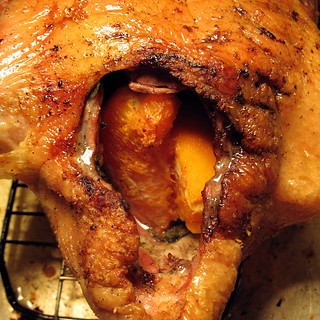
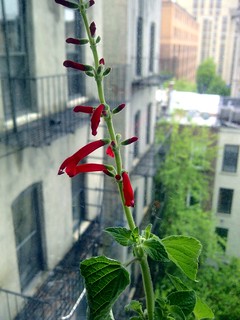

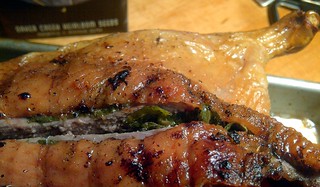


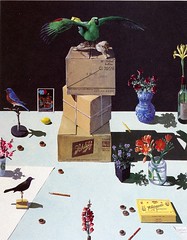

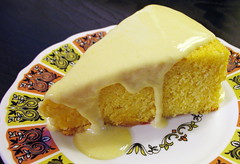
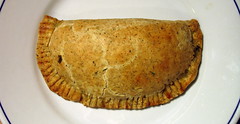


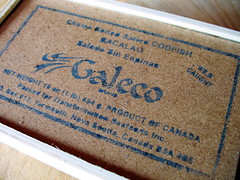

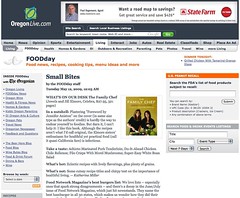


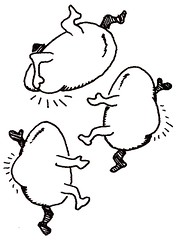
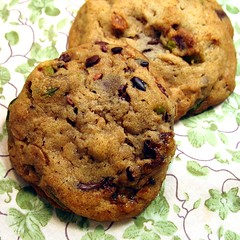

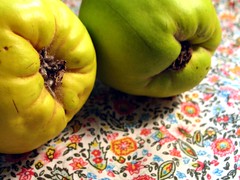
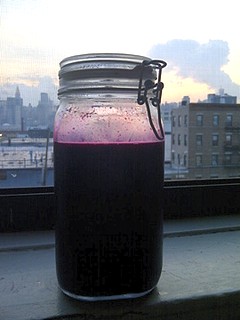
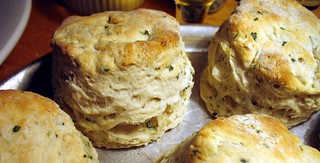
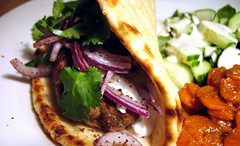
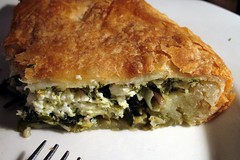


No comments:
Post a Comment